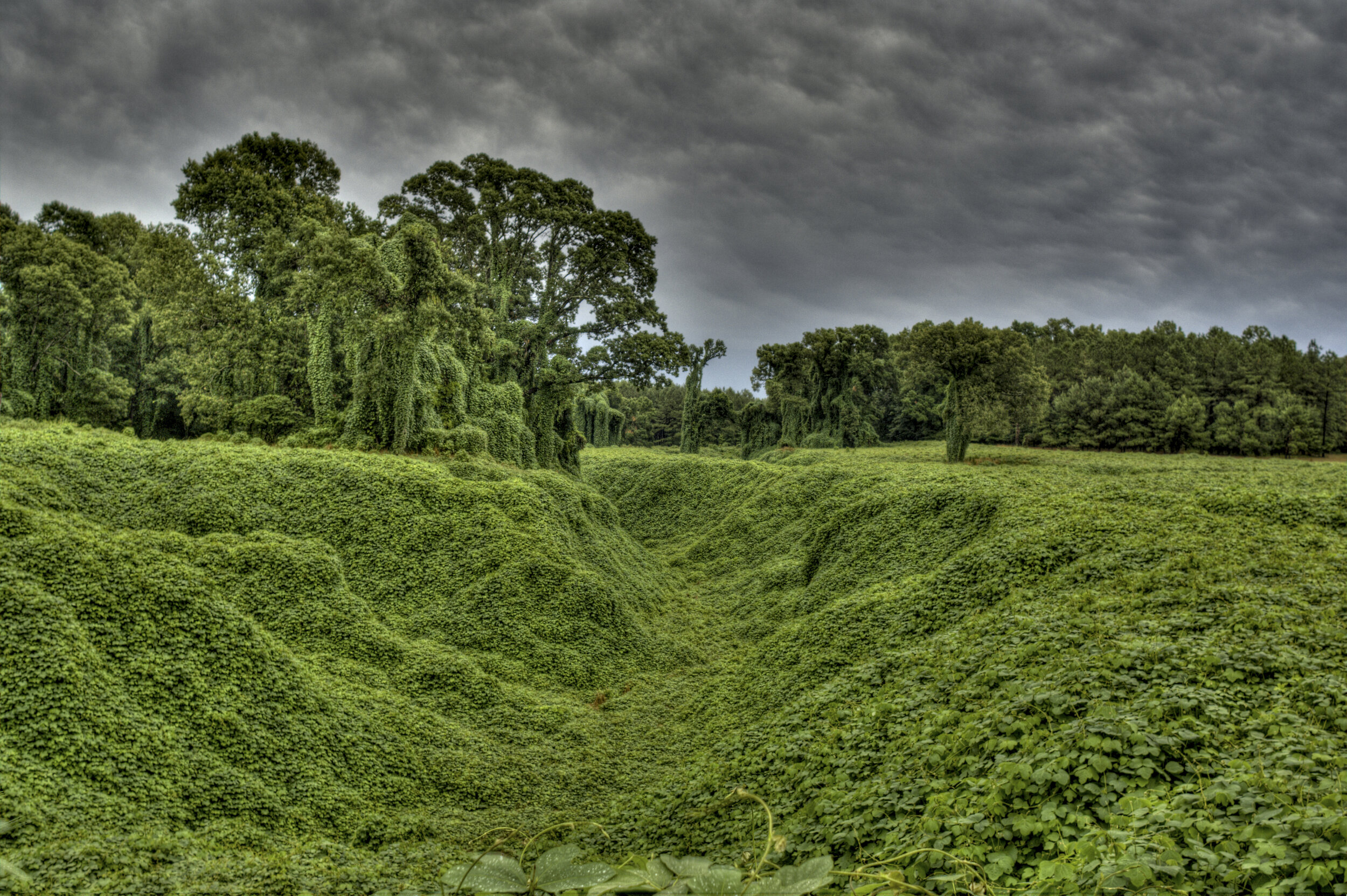Kudzu

How many years for the earth to eat the building whole. To choke out all the native plants by swallowing the sun.
To be a part, a single delicate thing, without edges, growing into the space of community, a viral creep along walls and cliffs. When a place’s most iconic thing is of other, is invasive, is violent, is seizing power and space. And our audacity to want to feel bigger, to use our hands and tendrils and fiddlehead ferns and songs and cigarettes and wine stains and abortions and homemade bread to be something bigger than our animal bodies, small and dumb in the face of fascism.
The building where we went to high school collapsed years ago, slipped into the ground when the limestone shifted. It happened after school, while the girl’s volleyball team was practicing in the gym. One of those things that happens while you’re away, like the shooting.
That crushing realization about the earth, that it’s not all so solid. Anyway, they put up a chain link fence around it and left it to crumble, so that we could watch and see how many years it takes for earth to reclaim the concrete. That’s the thing about living in Appalachia or living in America, is that you’re used to decay, to the slow murder, to watching the shell of the thing start to sag and slip. Barns and shacks and slaughterhouses and mountaintops and cities.
I went back to look at it for the first time in a decade. The sun was shining slick off of the green leaves, the kudzu obscuring the boring graffiti, nothing but the dull ringing of a world that was never built for us.